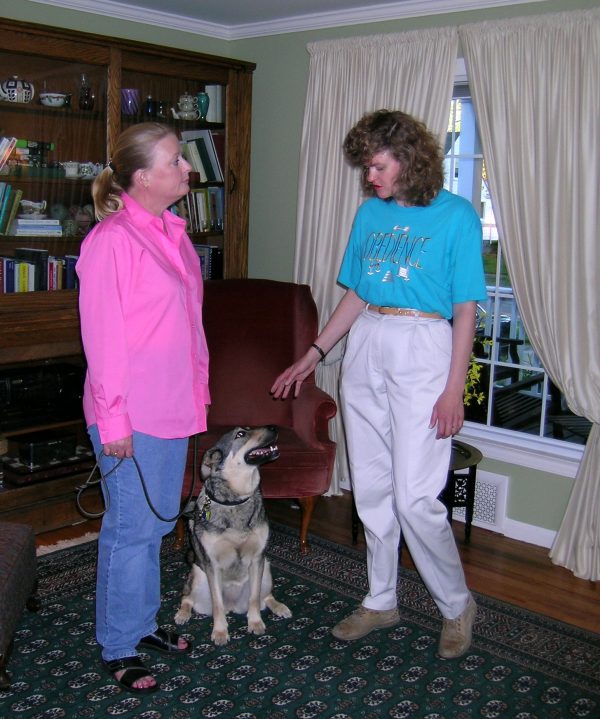The Role of Rewards in Teaching Advanced Canine Skills
When you're teaching advanced canine skills, rewards become more than just a simple token of appreciation. They serve as a powerful tool to reinforce complex behaviors and keep your dog motivated through challenging tasks. But how do you choose the right type of reward, and when should you switch from frequent to intermittent rewards to maintain enthusiasm without creating dependency? Understanding these nuances can greatly impact your training outcomes. Let's explore how you can effectively balance rewards and expectations, ensuring your dog's learning journey is both engaging and successful.
Understanding Canine Motivation
Grasping canine motivation is essential to unfastening successful training techniques. You need to understand what drives your dog to learn and respond positively.

Dogs, like people, have individual preferences and instincts that influence their behavior. By observing your dog's reactions and actions, you can identify what captures their interest or sparks their enthusiasm. This insight is vital for tailoring your training approach to their unique personality.
To effectively motivate your dog, pay attention to their body language and vocal cues. Notice what makes their tail wag or ears perk up.
Are they more engaged during play, or do they focus better when food is involved? Recognizing these signals helps you connect with your dog on a deeper level and enhances the training experience.
Types of Effective Rewards
Once you've tapped into your dog's unique motivations, selecting the right types of rewards becomes key to reinforcing desired behaviors. Not all rewards work equally for every dog, so understanding the variety available can make a big difference in your training sessions.
Food rewards often top the list due to their immediate appeal. Small, tasty treats like chicken bits or cheese chunks can quickly reinforce positive actions. Choose something your dog doesn't get every day to maintain its special allure.
Toys can also serve as effective rewards, especially for dogs with a high play drive. A quick game of tug-of-war or fetch can be more motivating than a treat for some canines. Guarantee the toy is portable and easy to use during training sessions.
Verbal praise and physical affection shouldn't be underestimated. Many dogs thrive on a simple "good job" or a scratch behind the ears. These rewards help strengthen the bond between you and your dog, making them feel appreciated and loved.
Finally, consider using activities as rewards. For instance, if your dog loves walks, a short leash time after a successful command can be incredibly motivating. Tailor the reward to fit your dog's preferences for best results.
Implementing Reward Strategies
Implementing reward strategies effectively is essential for successful canine training. When you're working on advanced skills, it's important to tailor your approach. First, make sure that the rewards you choose match the complexity of the skill. High-value treats or favorite toys work wonders when you're asking for more challenging tasks. Keep your dog's preferences in mind—what motivates one dog mightn't work for another.
Timing is significant. Deliver rewards immediately after the desired behavior to reinforce the connection. If there's a delay, your dog may not associate the reward with the action you want. Consistency matters too. Make certain you're rewarding the same behavior each time. This helps your dog understand exactly what earns the treat or praise.
Vary your rewards to maintain interest. If you always use the same treat, your dog might lose excitement. Mix it up with different toys or even playtime as a reward.
Remember to keep sessions short and engaging. Dogs, just like humans, can become bored or frustrated if training goes on too long. By implementing these strategies, you'll see improved focus and enthusiasm from your canine companion.
Balancing Rewards and Expectations
Striking the right balance between rewards and expectations is essential in canine training. When you're training your dog, it's easy to fall into the trap of over-rewarding. While it's important to celebrate progress, giving too many treats can lead to a lack of motivation and dependency on rewards.
Instead, aim to create an environment where your dog understands what's expected without always anticipating a reward. You can achieve this by gradually reducing the frequency of treats as your dog becomes more proficient in a skill.
Set clear expectations early on. When your dog knows what you want, they're more likely to meet your standards.
Consistency is key; if you expect your dog to sit before crossing the street, enforce this rule every time. By consistently applying expectations, your dog will learn to associate certain behaviors with specific situations.
Enhancing Skills Through Rewards
Rewards play an essential role in enhancing your dog's skills by reinforcing positive behavior and encouraging repetition. When you consistently reward your dog for performing a desired action, it learns to associate that action with something positive. This association encourages your dog to repeat the behavior, gradually refining and mastering more dog trainers advanced skills.
To effectively enhance skills through rewards, timing is vital. You need to reward your dog immediately after it performs the desired behavior. This helps your dog connect the reward directly with the action.
Consistency is equally important. If you reward your dog sporadically, it might become confused about which behaviors are being encouraged.
Variety in rewards can also keep your dog engaged and motivated. While treats are a common choice, consider using toys, praise, or playtime as rewards. This variety prevents your dog from getting bored and maintains its interest in training sessions.
Additionally, as your dog progresses, gradually shift from frequent rewards to intermittent ones. This shift helps your dog understand that it won't get a reward every time, but it should continue to perform the skill reliably.
This method strengthens your dog's ability to perform skills even in the absence of immediate rewards.